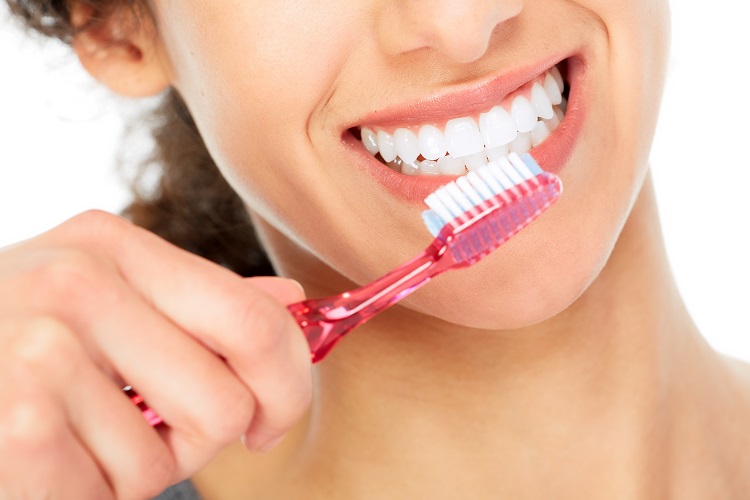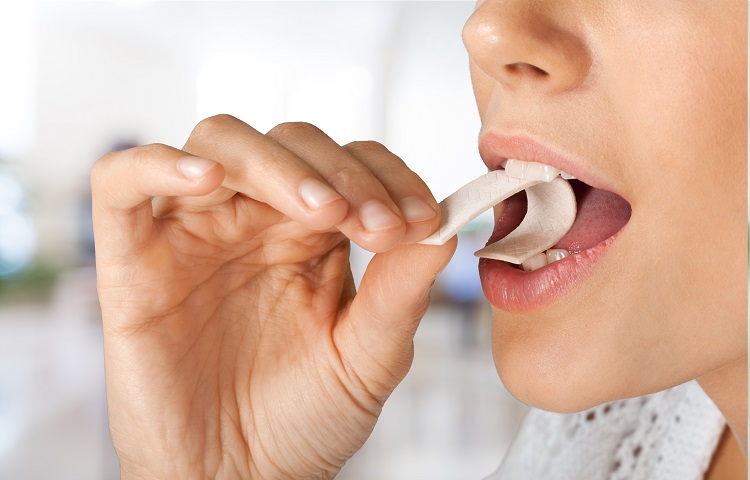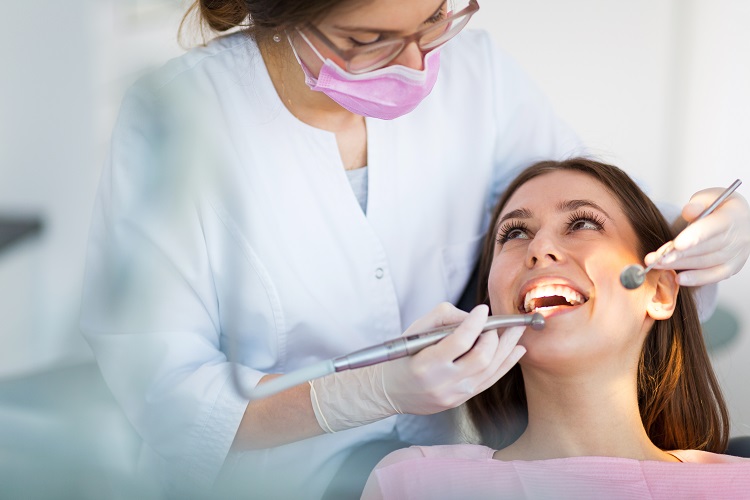Change Your Breath From Bad to Good
Bad breath usually happens after eating heavy-smelling food like garlic or in the morning after waking up. Some other causes of temporary halitosis include drinking alcohol or coffee, smoking cigarettes.
You may not be aware of your own halitosis but you may learn about it from a relative, a friend, or a colleague. This often makes people feel discomfort and shame. In severe cases, bad breath can negatively affect personal relationships and a person’s quality of life.
Fortunately, this problem is not difficult to cure completely. Good oral care habits, frequent visits to the dentist, and avoiding bad breath factors (some medications, foods, etc.) can make your breath feel fresher.
The causes of bad breath

Studies show that about 80% of the causes of bad breath are from oral problems. Tooth decay or gum disease can lead to bad breath; food particles trapped in the oral cavity, cracked fillings or unsanitary dentures can cause bad breath as well.
Some health problems in the body can sometimes cause bad breath, such as diabetes, liver disease, respiratory infections, and chronic bronchitis. You also need to see your doctor to treat conditions such as acid reflux, postnasal drip, and other causes of chronic dry mouth because they also cause bad breath.
Sometimes people think they have bad breath when their breath is completely normal. This condition is called halitophobia, and the person will not trust any reassurance from a doctor. At that time, talking to a therapist or a psychiatrist may help.
Effective ways to treat bad breath

To keep your teeth and gums healthy and improve your breath, you need to avoid bad breath. Try these tips to keep your mouth clean and fresh.
1. Brush your teeth and floss regularly
Plaque or food debris that leads to the buildup of bacteria on teeth can cause bad breath.
Keep your teeth clean by brushing your teeth at least twice and flossing once a day. If you still feel worried about your breath, do a little more teeth cleaning.
However, do not brush your teeth too much as they can erode tooth enamel, increasing the risk of tooth decay.
Do you know how to brush correctly so as not to cause harm to the teeth? Read this article to find out the answer now.
2. Rinse your mouth regularly
Besides keeping your breath fresh, mouthwash can also eliminate bacteria in the mouth. Choose mouthwash products that kill the bacteria which causes bad breath instead of just deodorizing. It is best to rinse your mouth daily to prevent bad breath from the beginning.
Gargle with water after eating also prevents bad breath because food particles trapped in the teeth will be removed somewhat.
3. Scrape the tongue

Plaque develops on the tongue’s surface can be home to bacteria that cause bad breath. To remove, gently brush your tongue with a toothbrush.
If you feel uncomfortable using a brush, try a tongue scraper. They are designed to apply uniform pressure to the surface of the tongue and help remove bacteria, food debris, and dead cells.
4. Avoid eating foods that make your breath smell bad
Onions and garlic are the most smelly food since brushing teeth after eating them does not help eliminate the smell immediately.
The odor-causing substances will enter the bloodstream and reach the lungs making bad breath. Thus, eat less of these foods or avoid them before going to work or meeting people.
5. Eat crunchy, healthy foods
Hard and crunchy foods like apples, celery, carrots, etc. can help eliminate food debris which stuck between teeth and make your breath feel fresher. These fiber-rich fruits help cleanse your teeth by increasing salivation and neutralizing the citric acid and malic acid remaining in your mouth. From there, bacteria no longer have the opportunity to stay on the teeth’s plaque.
In addition, fruits and vegetables that are rich in vitamin C also help protect the gums from damage and infection.
6. Quit smoking habit
Besides increasing the risk of cancer, smoking can damage the gums, stain teeth and cause bad breath. Thus, try to quit smoking. You can ask your doctor for advice about smoking cessation programs or some ways to quit smoking.
7. Chewing gum after meals

The bacteria in the mouth love sugar because they use it to create acids that erode tooth enamel and cause bad breath. So, instead of eating candy after a meal, chew sugar-free gum containing xylitol.
Chewing gum will stimulate the mouth to produce saliva, which is also a natural mechanism that helps protect teeth against acid from plaque. At the same time, xylitol is also an antibacterial substance, which helps to limit tooth decay and bad breath.
8. Keep the gums healthy
Gum disease is also the cause of bad breath. Bacteria will "gather" in the roots causing an unpleasant odor. If you have any gum problems, visit the dentist for immediate treatment.
9. Do not let your mouth dry
You may have tooth decay and bad breath if the amount of saliva is not enough. So drink plenty of water, avoiding dry mouth. Chewing sugar-free gum or sugar-free hard candy will help stimulate salivation, moisturizing the mouth. Besides, try using a humidifier indoors at night to moisten the air.
10. See a dentist

If all your efforts to improve your breath smell do not get the results you want, see your dentist. They will check your general dental condition and let you know whether you have any other medical condition.
In addition, you should visit the dentist regularly at least every 6 months to have dental checkups and timely detect dental problems. From there, the dentist will help you with prompt treatment, maintain healthy teeth, and fresh breath.
Reference source
Services
Working Time
- Monday - Friday: 08:00 - 19:00
- Saturday: 08:00 - 18:00
- Sunday closed
Contact Info
- Hotline 1: (+84) 908 321 455
- Hotline 2: (+84) 931 857 885
- Mobile: (+84) 8 3925 8778
- Phone: (+84)2 838 258 778
- info@dentalrose.net
- rosedentalclinicvn@gmail.com
 English
English  Tiếng Việt
Tiếng Việt

